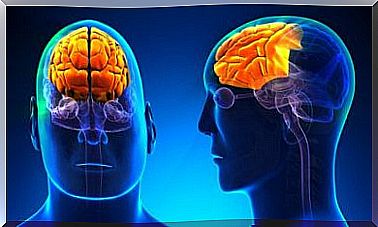What Is The Emotional Profile Of Your Brain?

For a long time psychologists and psychiatrists have been accustomed to studying the population based on personality patterns and a certain style of intelligence. You could be extroverted, introverted, sociable, neurotic, have a logical-mathematical intelligence or a musical one… And emotions? Aren’t they responsible for our behavior most of the time? Aren’t they the ones that make us love, hate, fear or desire?
That’s right, and it was Professor Richard J. Davidson, of the University of Wisconsin, who proposed the need to establish a new parameter: the emotional profile.
Would you like to know which one you identify with the most?
1. The resistance
Day after day, we all face constant challenges and adversity. Resistance is, in this case, the personal ability we have to recover from a difficult event, in the face of a stressful situation, a loss, a disappointment or a simple discussion with our partner or friend. We can recover quickly by learning from what happened or we can drag this fact behind us for a long time.
2. The attitude
With what spirit do you face reality? Are you optimistic, cautious, skeptical, cautious or negative? It is true that the mood can vary from day to day, but each person has a personal style, a trail in which he leaves the imprint of optimism or negativity. Davidson does not seem to be setting any terms here.
3. Social intuition
It is about empathy, the ability to read and recognize in others those signals that say a lot about the people around us. They’re happy? Worried? Disappointed? Non-verbal language offers many clues; for many people they go unnoticed, while for others they are easy to pick up. You are socially intuitive or rather bewildered and do not care about this aspect.
4. Self-awareness
In this case we refer to the ability to perceive and understand our own emotions and feelings. Can you recognize your crises? Your jitters? Your disappointments? Sometimes it happens that we feel bad without knowing the reason well, we are restless and this malaise ends up manifesting itself through an illness. Here Professor Davidson tells us that we can be “self-conscious” or “opaque”.
5. Sensitivity to the context
How do people react to certain contexts? There are those who usually be very fickle depending on the person with whom they are relating or where they are. Others, on the other hand, are the same everywhere and in front of any type of person. There are circumstances in which we are more context sensitive, but there are usually many differences from person to person. Do you know how to adapt? Are you always the same or do you change the way you interact?
6. Concentrated or distracted
Here we talk about the ability a person has to eliminate emotional distractions and stay focused on a specific task. Are you capable of doing it? Sometimes it happens that we find ourselves overwhelmed by problems and worries and, since our heads are elsewhere, we are unable to follow our obligations.
However, there are other people who manage to stay in control and put aside that avalanche of emotions in order to focus on their tasks.
According to Professor Richard J. Davidson, we all place ourselves in one of the poles of these categories, thus delineating a particular and unique emotional profile. This can be used to dig into the neuronal and emotional substrate of our brain and train skills that make us improve our quality of life and be more emotionally effective. We will be able to be more empathic and receptive and manage our reality in an optimal way.
It may be that more than one does not feel identified or that it does not seem like a good thing to be in one pole or another. However, there is no doubt that, at least for a moment, this article made us reflect and appreciate some aspect of ourselves.









